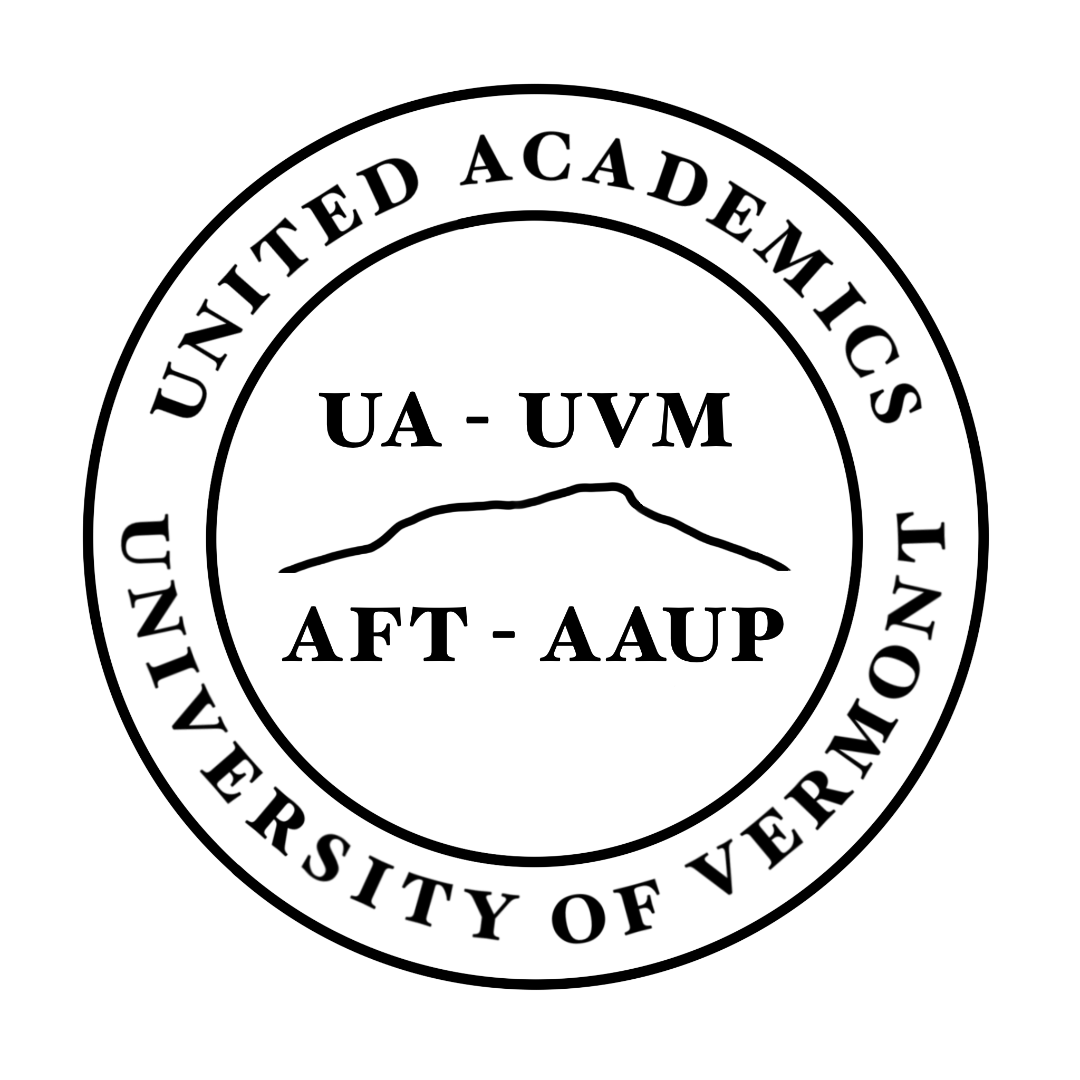Dear colleagues,
I have several things to share today: a draft agenda for our spring Members’ meeting (next Wednesday April 4th at 2:30 in John Dewey Lounge in Old Mill), details about the new budget to be voted on at the meeting, a reminder to fill out our survey about cuts in CAS, and a call to engage more faculty in union activities.
1) Please remember to fill out the short (<5 minute) survey emailed to you on Monday with the subject line “Survey on Budget Cut Impacts.” The College of Arts and Sciences represents roughly half of UVM in terms of faculty and students; what happens there can impact the entire university in various ways. UA is trying to better understand the impacts of ongoing and proposed cuts in CAS on faculty inside and outside of CAS. Whether the effects on you have been major, minor, or none at all, we want to know.
2) The Spring Member’s meeting is Wed. April 4th at 2:30 in John Dewey Lounge. There is a lot going on. Come and bring a colleague. After approving past minutes we plan to 1) vote on UA's budget and stipend policy for next year (see next item); 2) discuss the state of fact-finding and negotiations; 3) discuss budget cut impacts on education and research at UVM; 4) discuss an outreach campaign to members and fee payers; 5) hear about ongoing efforts to address racial justice issues, D1 courses, and more from the Civil Rights Committee. What the union does matters, and this is your chance to learn and make a difference. (If you are a fee payer and would like to join so you can participate in the meeting, click here, or come to the meeting and you can sign a member card at the door.)
3) The UA Budget: attached to this email you’ll find documents regarding our proposed budget for next year to be voted on at the Member’s Meeting. There are big changes. The US Supreme Court’s Janus decision is expected to be announced any day now, and it will almost certainly mean that, as a public sector union, we will no longer be able to charge agency fees to fee payers. This will cause a significant drop in our income, and the proposed budget addresses that. We have cut most stipends to faculty in half, and made a few other changes to reduce costs. The EC and the Delegates Assembly have approved these changes, on the grounds that they are fiscally responsible, even if difficult. Please take a minute to look over the budget documents for the details.
4) Outreach: In part to address the budget situation, and more importantly as an ongoing duty to the democratic nature of the union, we are looking for ways to connect to faculty, whether fee payers or members, who have not been involved in the union recently, and who may not have much awareness of what the union does and how it works. We are building a new section of the website called “Why a Union?” including information on things like the effect of the union on salaries. We ask everyone to talk to their colleagues about work life at UVM and the union, to share ideas and concerns with each other, and to let us know if you hear questions, concerns, complaints, or suggestions.
Thanks for all your contributions to UVM, and please keep in touch.
Tom Streeter
President, United Academics
thomas.streeter@uvm.edu
United Academics is the union of full- and part-time faculty at University of Vermont, with over 700 members from departments and colleges across the campus. We represent faculty in negotiating and upholding contracts, and we advocate for fair labor practices within and beyond our academic community. We are a member-led union committed to academic freedom, shared governance, social and environmental justice.
